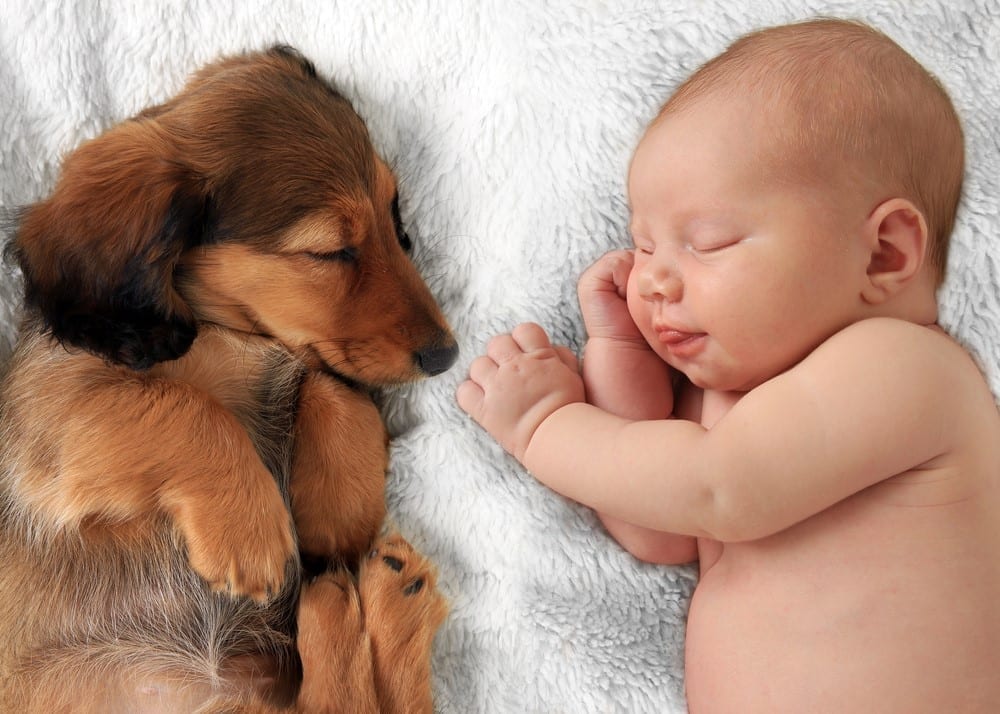A constant companion in the form of your four-legged best friend may be less than thrilled when you bring home a new, little bundle of joy. While some of our pets may become anxious when we leave them at home while we’re away, imagine how they’ll feel when we bring home something that requires almost constant supervision and care.
While the majority of pets will make this transition smoothly without incident, there are some ways we can make this process more tolerable for our pets. Check out these tips for bringing baby home that will make this unexpected appearance more pleasant for them:
Before The Big Day
The majority of new parents will have the nursery completely set up weeks or even months before the new arrival, but consider putting out all the accouterments out in advance. Even those that may not be used immediately, like swings, playpens and other items. If these items are slowly introduced into the home, it won’t come as a big shock if they start popping up all over the place after the baby arrives. Other preemptive tasks to consider before the big day arrives include:
- Making sure your pet has a checkup with the vet just in case there are problems you may not be aware of that could be hazardous for an infant.
- Getting rid of unwanted behaviors before the arrival – if you don’t want your animals on the couch for example, attempting to teach them during this adjustment period may cause resentment.
- If your critter isn’t crate trained, consider giving them their own, separate space, a laundry room or garage, some area where a future toddler won’t freely traverse.
- Start carrying around a doll or another baby-sized item, wrapped in a blanket, to get your animal used to the fact that you’ll be bonding with something besides them in the future.
- Babies are noisy, especially to a pet’s sensitive ears, so think about playing some videos or sound bites of infants and their many noises, crying, cooing, laughing, etc.
When possible and if time permits, see if one of the parents can bring home a baby blanket before the infant comes into the house. This way, a pet’s equally sensitive sense of smell can be broken in before the blow of the baby’s arrival invades their space.
Baby Steps
Speaking of arrival time, make sure that when you do come home, you separately greet your pet first, to make them feel that everything is still “as is” and you’re not ignoring them immediately after entry. You’ll also want to start off slowly with the introduction process, don’t force it and be there with a leash on your dog and a careful eye on your cat, just in case.
Cat Concerns
Felines are agile creatures by nature and probably shouldn’t be allowed into the nursery, not at first anyway. These curious cats may leap into the crib or onto a changing table, which could be problematic. If your kitty has a cat box that could be easily accessible by a soon-to-be toddler, if you want to move their bathroom to another location, do so long in advance and little-by-little. Don’t just take it from point A to B, but instead slowly move it a few feet at a time, day-by-day.
Again, as we stated in the beginning, this process is likely to go very smoothly, but you can still make the transition as stress-free as possible for everyone involved with some preventative measures. This new addition to the family and your existing pet will eventually become best friends before you know it and you’ll all be one, big, happy family!












